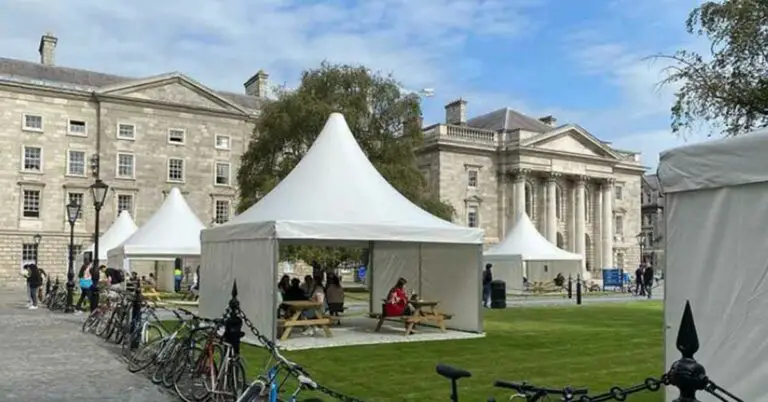An opportunity to study pharmacy in Australia is always a dream. Australia is one of the countries that are open to accepting international students to study in any of their institutions as long as you made the basic entry requirements.
You should be able to provide basic application requirements such as transcript, certificates, valid passport, Proof of English Proficiency test results, and proof of Scholarship if you are under any scheme.
How Pharmacy Education in Australia Works
The training and education of pharmacists in Australia is regulated by the Australian Pharmacy Council. They accredit all pharmacy schools in the country. After graduation, you will have to register with the Pharmacy Board of Australia through the Australian Health Practitioners Regulation Agency (AHPRA).
The curriculum used to study pharmacy in Australia is designed to focus on Pharmaceutical sciences, Pharmacy practice and Pharmacotherapeutics.
The minimum requirement to practice as a pharmacist in Australia is Bachelor of Pharmacy (BPharm), a four-year program degree. Prior to the change in the early 2000s, it was a three-year degree. In Australia, you can go for BPharm, or MPharm degree. There is also another additional degree program, B. Pharm (Honour). We will explain all of them in details.
The master of Pharmacy is a two-year postgraduate program, but they still account for lower number of pharmacists in the country. University of Western Australia also offer Doctorate degree in Clinical Pharmacy.
After the completion of the degree courses, both BPharm and MPharm, the pharmacist is expected to go for internship program. Read our previous post on list of pharmacy schools in Australia, their school fees, and courses.
You can take part-time pharmacy program in Australia, that lasts for eight to ten years. The part-time program is mostly for undergraduate studies.
In Australia, the pharmacy degree from some universities in New Zealand are equivalent with their pharmacy degree. Hence, the Board qualifies them to be registered as pharmacists.
The pharmacy schools are: University of Auckland Bachelor of Pharmacy, New Zealand University of Auckland Bachelor of Pharmacy (Honours), New Zealand University of Otago Bachelor of Pharmacy, New Zealand University of Otago Bachelor of Pharmacy (Honours), New Zealand.
Australian pharmacists can practice in both Australia and New Zealand and vice versa.
Pharmacists in Australia can work in pharmaceutical, biotechnology or nutraceutical industries. Other career opportunities are hospitals, community pharmacy, academia and research, and administration.
Difference Between BPharm and BPharm (Honour)
If you study pharmacy in Australia, you will come across two types of undergraduate studies – BPharm and BPharm (Honours). The Bachelor of Pharmacy (B. Pharm) and the Bachelor of Pharmacy (Honours) also shortened to BPharm(Hons) are both 4 year degree programs.
The difference between BPharm and BPharm (Hons) is that BPharm (Hons) is only awarded for high performance in academics and those who have completed an original research. BPharm program, on the other hand, will lead to the awarding of a pass.
Difference Between the BPharm and MPharm
Another variation of the pharmacy degree in Australia is the BPharm and MPharm. The difference between the BPharm and MPharm is that while MPharm is a graduate degree, BPharm is an undergraduate degree. Also, candidates enrolling for MPharm are believed to have the thorough knowledge of what is taught to the first year students of the BPharm program.
This is because they have completed a Bachelor Degree where they passed subjects relevant to Pharmacy. The curriculum of both degree types are similar.
Basic Requirement
As a basic requirement, most students seeking to study pharmacy in Australia must have successfully completed a minimum of an Australian Year 12 qualification (or equivalent) and achieve the required academic entry score. A minimum of 55%, 60% or 70% in Mathematics, Chemistry, English, and Biology is required. Some schools may require Level-A marks in major subjects.
The Australian Tertiary Admission Rank (ATAR), the primary measure for entry into most undergraduate-entry university programs in Australia.
Language Requirement
You will not take English Language Proficiency Test if:
- The applicant primary language is English and all the applicant’s secondary education was taught and assessed solely in English in Australia, Canada, New Zealand, Republic of Ireland, South Africa, United Kingdom or United States of America; or the completion of the last two years of the education in English in the above listed countries.
- Satisfactory completion of at least six years of full-time or equivalent full-time study at senior secondary, post-secondary or tertiary level taught and assessed solely in English, in Australia, Canada, New Zealand, Republic of Ireland, South Africa, United Kingdom, or United States of America.
If are not a citizen of the above listed countries, continue reading to see the language requirement of specific institutions.
University Specific Language requirements (English Language Proficiency Test)
- James Cook University: ELTS: 7.0 overall, minimum of 6.5 in each band, TOEFL: 94 overall(no score less than 23 in each component) and PTE: 65 overall scores with a minimum of 58 in each skill.
- Curtin University: IELTS: 7.0 overall with minimum 7.0 in each band, TOEFL: 99 overall, with minimum 24 for Reading, 24 for listening, 23 for speaking and 27 for writing), and PTE: 72 overall score with a minimum of 65 in each skill.
- University of Tasmania: IELTS: 6.5 overall with minimum 60 in each band, TOEFL: 88 overall, with minimum 16 for Reading, 16 for Listening, 18 for Speaking and 22 for Writing, and PTE: 58 overall scores with a minimum of 50 in each skill
- Monash University: IELTS: 6.5 overall, minimum 6.0 in each band, TOEFL 79 overall with 21 for Writing, 18 for Speaking, 13 for Reading and 12 for Listening, and PTE: 58 overall scores and a minimum of 50 in each skill
- University of Sydney: IELTS: 6.5 overall with minimum 6.0 in each band, TOEFL 85 overall with 19 for writing, 17 for Speaking, Reading, Listening, and PTE: 61 overall scores with a minimum of 54 in each skill.
- Griffith University: IELTS: 7.0 overall with minimum 6.5 in each band, TOEFL: 92 overall (no score less than 22), and PTE: 65 overall, minimum of 58 in each skill.
- Charles Darwin University: IELTS: 6.5 overall with minimum 6.0 in each band, TOEFL: 65 overall with 21 for Writing, and PTE: 50 overall, minimum of 54 in each skill.
- La Trobe University: IELTS: 6.5 overall with minimum 6.0 in each band, TOEFL: 79 overall, no score less than 12 in listening, 13 in Reading, 18 in speaking and 21 in Writing and PTE:56 overall score with a minimum of 46 in each skill.
- Charles Sturt University: IELTS: 7.0 overall with a minimum 6.5 in each band, TOEFL: 94 overall, no score less than 24 in Listening and Reading,23 in speaking and 27 in Writing and PTE: 66 overall scores with a minimum of 58 in each skill.
- RMIT University: IELTS: 7.0 overall with a minimum 6.5 in each band, TOEFL: 94 overall, no score less than with minimum of 19 in Reading, 20 in Listening, 20 in Speaking and 24 in Writing, and PTE: 66 overall scores with a minimum of 58 in each skill, Cambridge English: Advanced (CAE) minimum of 185 with no less than 176
- Queensland University of Technology: IELTS: 7.0 overall with a minimum 6.5 in each band, TOEFL: 98 overall, no score less than with minimum of 20 in Reading, 20 in Listening, 20 in Speaking and 24 in Writing, and PTE: 66 overall scores with a minimum of 58 in each skill, Cambridge English: Advanced (CAE) minimum of 185 with no less than 176
- University of Canberra: Overall IELTS Academic score (or equivalent) of 7.0, with no band score below 7.0. TOEFL: 94 overall, no score less than with minimum of 24 in Reading, 24 in Listening, 23 in Speaking and 27 in Writing, and PTE: 65 overall scores with a minimum of 65 in each skill, Cambridge English: Advanced (CAE) minimum of 185 with no less than 185.
- University of Newcastle: IELTS overall minimum – 7.0, IELTS section minimum – 7.0
- University of New England: IELTS: 7.0 overall with a minimum 7.0 in each band, TOEFL: 94 overall, no score less than with minimum of 23 in Reading, 24 in Listening, 24 in Speaking and 23 in Writing, and PTE: 65 overall scores with a minimum of 65 in each skill, a minimum OET score of B in each of the four components: Listening, Speaking, Reading, Writing.
- University of Queensland: IELTS: 7.0 overall with a minimum 7.0 in each band, TOEFL: 100 overall, no score less than with minimum of 25 in Reading, 25 in Listening, 23 in Speaking and 27 in Writing, and PTE: 72 overall scores with a minimum of 72 in each skill, Cambridge English: Advanced (CAE) minimum of 185 with no less than 185.
- University of South Australia: IELTS: 7.0 overall with a minimum 6.5 in each band, TOEFL: 94 overall, no score less than with minimum of 20 in Reading, 20 in Listening, 20 in Speaking and 20 in Writing, and PTE: 65 overall scores with a minimum of 58 in each skill.
Australia Scholarships for Students
For those who study Pharmacy in Australia, there are many merit-based, region based and university specific scholarships to help them in funding part of their tuition. Scholarships for international students in Australia are Australia Award Program, Destination Australia Scholarship.
Monash University offers Pharmacy International Undergraduate Merit Scholarship. Always check the school website and newsletters to see the opportunities.





